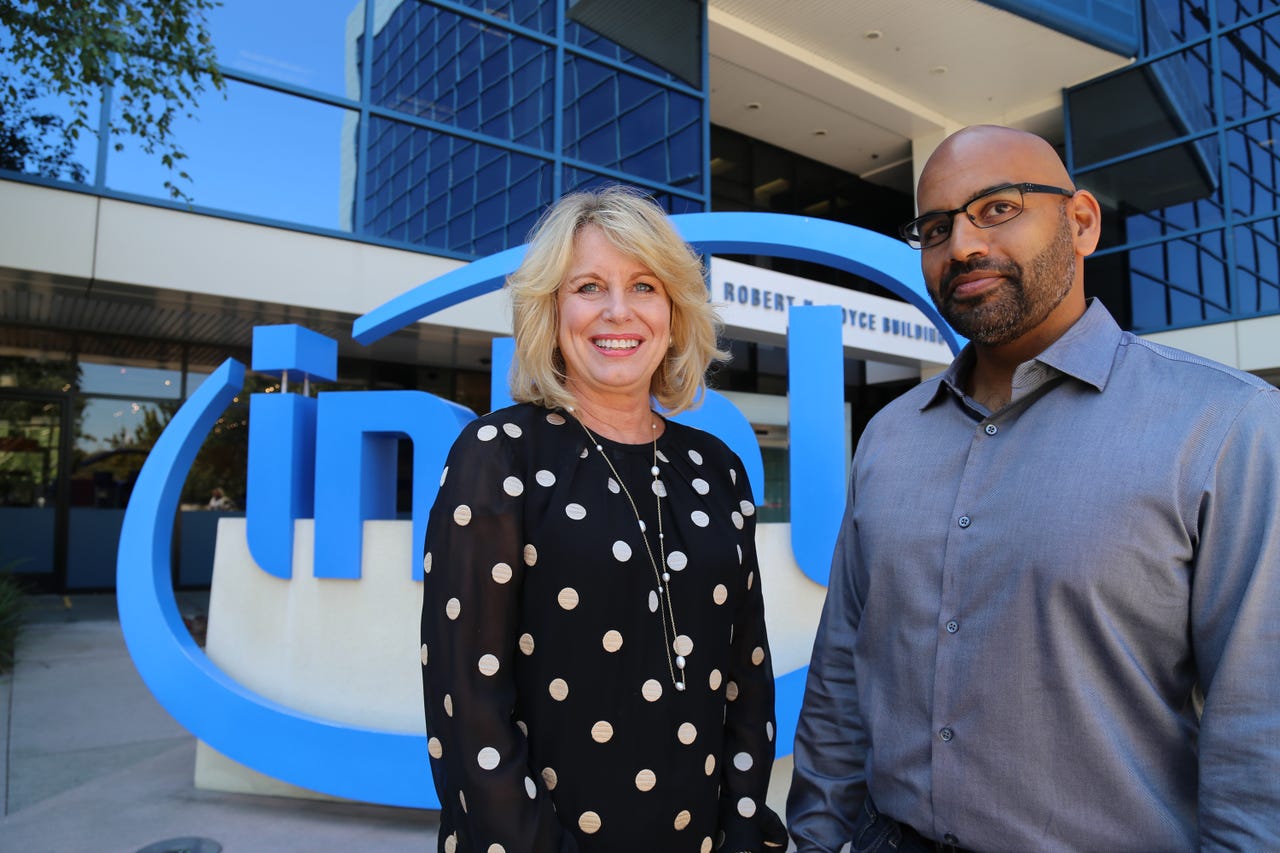Intel integrates Nervana technology into product roadmap


Diane Bryant, Intel executive vice president and general manager of the Data Center Group, stands with Nervana co-founder Naveen Rao.
Within just two months of acquiring Nervana, Intel is integrating the deep learning startup's technology into its product roadmap, the company announced Thursday. The new Nervana platform will be the industry's most comprehensive portfolio for AI, the company contended, built for speed and ease of use.
"We expect the Intel Nervana platform to produce breakthrough performance and dramatic reductions in the time to train complex neural networks," said Diane Bryant, Intel executive vice president and general manager of the Data Center Group, in a statement. "Before the end of the decade, Intel will deliver a 100-fold increase in performance that will turbocharge the pace of innovation in the emerging deep learning space."
Intel will test the first silicon (codenamed Lake Crest) in the first half of 2017 and make it available to a small set of customers later in the year. While the Xeon 5 is applicable to more general machine learning workloads, this product will be very specifically targeted at deep learning, enabling new AI innovation.
"What we offer here is unprecedented compute density and high bandwidth interconnect," Nervana co-founder and Intel Vice President Naveen Rao told ZDNet. "It's engineered from the ground up for deep learning. There are many compromises that general purpose architectures have to make, and we don't have to make those in this particular product."
Additionally, a new product codenamed Knights Crest will tightly integrate Xeon processors with the technology from Nervana.
The promise for major advances -- thanks to Nervana's technology -- was just one of several of announcements related to artificial intelligence that Intel delivered Thursday. The chipmaker also announced that it's shipping a preliminary version of its next-generation Xeon processors (Skylake) to select large cloud providers. The new products mark one of Intel's biggest Xeon platform enhancements in nearly a decade. Additionally, its Knights Mill product, the next generation of Xeon Phi processor, will be available in 2017 and will deliver a 4-fold improvement in deep learning performance over today's product line, Intel promised.
The company also announced a strategic partnership with Google to accelerate enterprise cloud adoption, a move that should enable enterprises to run more workloads like AI applications.
Delivering these performance improvements is the first step in Intel's strategy for advancing the development and widespread application of artificial intelligence.
"When you look at transformations in the industry, from personal computers to the Internet to cloud computing, we've played a pretty substantial role in helping to bring together a platform for the industry and accelerating the industry in its transformation," Intel Vice President Jason Waxman told ZDNet. "I believe artificial intelligence is the next big wave in computing, and as such we have a lot of assets we bring to bear."
AI could transform industries ranging from industrial manufacturing and vehicles to health care and fraud detection. Yet bottlenecks in performance and affordability in computing power must be overcome first, Waxman said. The pace at which Intel was able to integrate Nervana's technology into its own plans to break those bottlenecks is significant. Waxman called it "probably one of the most successful starts we've had to a new acquisition".
As Intel aims to bring AI everywhere, its efforts have extended beyond silicon. Thanks to its acquisition of the cognitive computing company Saffron, Intel offers a platform for delivering business insights using a variety of different machine learning techniques, like associative learning and memory-based reasoning.
Meanwhile, its acquisition of Movidius will allow Intel to integrate vision processing units into its product roadmap, complementing Intel RealSense technology.